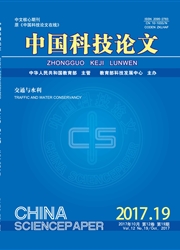

 中文摘要:
中文摘要:
针对风电机组噪声测量过程复杂的状况,研究IEC 61400-11风电机组噪声测量标准,提出用非声学参数对机组噪声的A计权声压级进行预测。分析基于遗传算法的支持向量机回归(GA-SVR)的不足并提出改进措施,结合实际情况平衡了遗传算法(GA)的终止条件,针对样本特性会影响SVR预测精度的问题,提出采用回归分析对样本特性进行处理。应用统计软件SAS完成了基于回归分析的变量筛选,去除了变量间的共线性并实现了降维;再通过异常点诊断,剔除了数据中的强影响点;最后将处理后的样本引入改进的GA-SVR建立预测模型。通过实测的风电场数据,应用回归分析、改进的GA-SVR及两者结合的方法进行了噪声预测,其中结合预测的方法精度最高,其预测结果的相对误差平均值仅为0.775 7%,具有实际可行性。
 英文摘要:
英文摘要:
Aiming at complicated process of wind turbines noise detection, the IEC 61400-11 technology standard for noise meas- urement was studied, and non-acoustic parameters on the A-weighted sound pressure level of noise was proposed to predict. This paper analyzed the shortcomings of based on the support vector regression of genetic algorithm, and the improvement was put for- ward. Combined with actual situation, the termination conditions of genetic algorithm(GA) was balanced. For the problems of sample characteristics might affect SVR prediction accuracy, regression analysis was proposed for processing the sample charac- teristics. SAS statistical software was used to complete regression analysis of variable screen in order to remove the collinearity and achieve dimensionality reduction. Then outlier diagnosis was completed, and the data influential point was excluded. The treated samples wwere introduced to improve GA-SVR establishing prediction model. With measured data of wind farms, using regression analysis, improved GA-SVR and combination of both to carry on the noise prediction. And combination forecast had highest prediction accuracy. Its average relative error was only 0. 775 7% , and this method had practical feasibility.
 同期刊论文项目
同期刊论文项目
 同项目期刊论文
同项目期刊论文
 期刊信息
期刊信息
